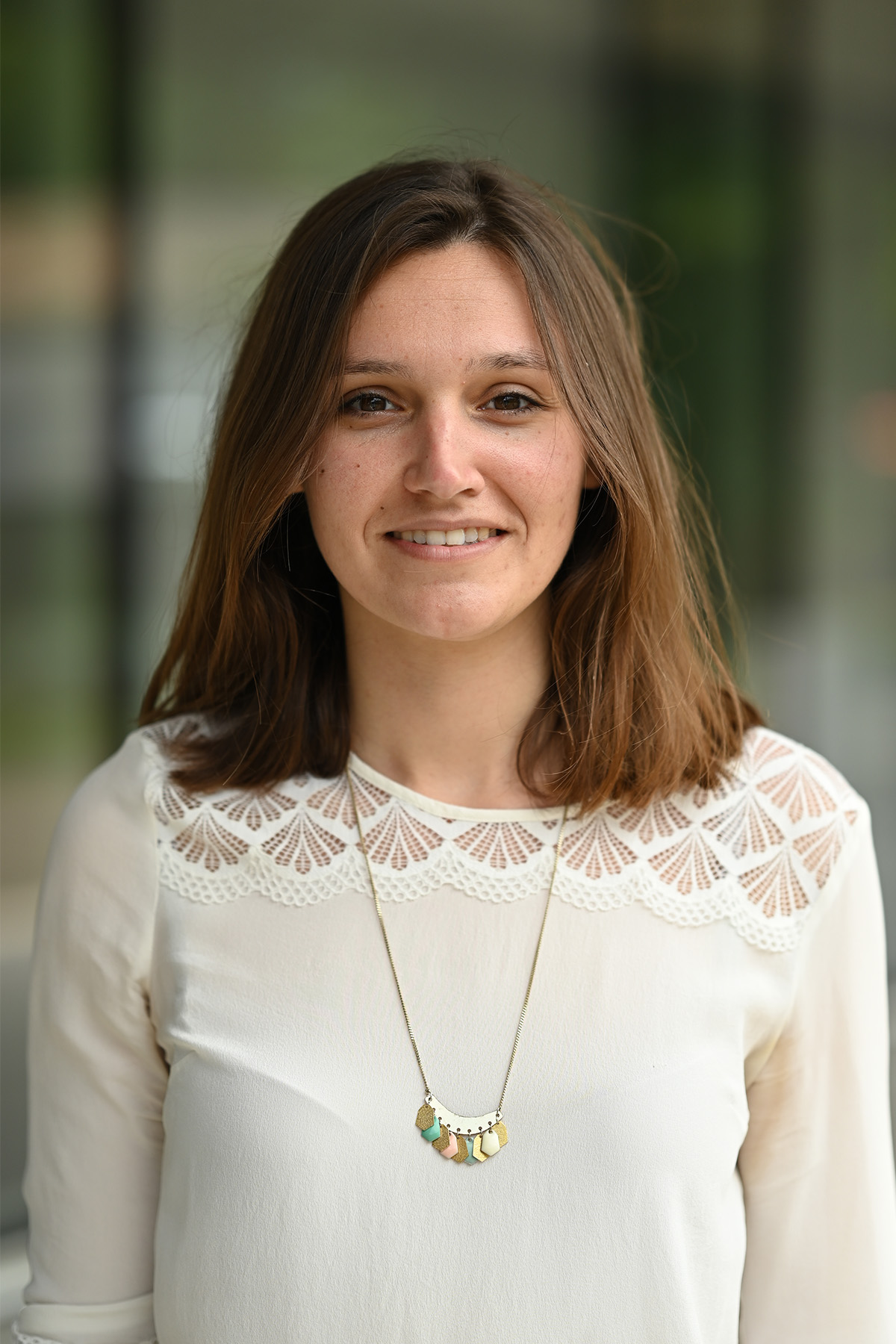Venue: CGFB and on Zoom
https://u-bordeaux-fr.zoom.us/j/87484940851?pwd=R0VQYUF3N0xYT0xGOUdVMjNOOWF4UT09
Defense in french
 Laura Lambert
Laura Lambert
Sanpsy
Thesis supervisor:
Fuschia Serre
Title
Influence of clinical insight on craving in addiction: exploration at between- and within-person levels.
Abstract
Introduction
Addiction is defined as the loss of control over the use of a substance or behavior that persists despite harm. Craving is an intense, fluctuating, involuntary urge to use, and a major risk factor for relapse. Using the Ecological Momentary Assessment (EMA) method, previous studies have prospectively linked an increase in the number of cues (conditioned stimuli to use) with an increase in craving and an increase in the likelihood of use. In the absence of biomarkers, craving can only be accessed through individual experience and recall, which may be influenced by cognition, interoception, and metacognition. These abilities are also involved in clinical insight, or awareness of one’s illness, the alteration of which contributes to less adherence to treatment and more risk of relapse. It is therefore possible that insight and craving interact in addiction. Insight has always been studied as a stable trait in addiction, but theories suggest that it may show fluctuations.
The purpose of this thesis was to examine the influence of clinical insight on craving, and on use modification in addiction at the between-person, and the within-person levels in order to examine the effect of possible fluctuations in insight on the cues-craving-use relationships.
Methods
Subjects with addiction to different substances and/or behaviors, and being in or out of care, were assessed. The modified Hanil Alcohol Insight Scale (m-HAIS) was used to assess clinical insight. Perceived need for treatment (PTN) was modeled by crossing objective clinical severity with the subjects’ subjective experiences. The EMA was used to collect momentary craving in daily life for 14 days, and momentary clinical insight through the creation of the Momentary Clinical Insight Scale. Factorial and psychometric analyses tested its validity. The Hierarchical Linear Models (HLM) examined the fluctuation of insight and its impact on craving and on the prospective cues – craving – use links.
Results
At the between-person level, low clinical insight (m-HAIS) and low PTN were associated with less craving reported retrospectively. Alterations in clinical insight and episodic memory could reduce the consistency between craving reported at the moment, versus retrospectively. On the other hand, having a poorer insight was associated with more difficulties in stopping or modifying use during the first three months of treatment.
At the within-person level, insight showed daily fluctuations, and a decrease in insight was associated with a decrease in craving in the following hours. In parallel, an increase in craving was associated with an increase in insight in the following hours. In contrast, fluctuations in clinical insight did not show an effect on use, and on the cues-craving and craving-use relationships.
Conclusion
In this thesis, we have shown that having less insight contributes to report less craving retrospectively, and to have more difficulty for modifying use at the beginning of treatment. The EMA study has shown for the first time that insight in addiction fluctuates rapidly, and that a transient decrease in insight is associated with a decrease in self-reported craving in the following hours. Similarly, craving can contribute to influence insight level. All these studies underline the clinical interest of taking into account insight as a factor that can modify craving, a central target of addiction treatment. For research, our results offer new perspectives to understand the mechanisms underlying the expression of craving and its link with relapse.
Keywords: Addiction, Craving, Clinical Insight, Ecological Momentary Assessment, Use
Publications
Accepted
Lambert, L., Serre, F., Thirioux, B., Jaafari, N., Roux, P., Jauffret-Roustide, M., Lalanne, L., Daulouede, J.P., Auriacombe, M., accepted. Link between perception of treatment need and craving reports in addiction. Front Psychiatry. DOI: 10.3389/fpsyt.2021.790203.
Submitted for review
Lambert, L., Serre, F., Thirioux, B., Jaafari, N., Auriacombe, M., submitted. Clinical insight level predicts successful quit or control attempts during the first three months of outpatient addiction treatment. Soumis à Drug and Alcohol Dependence
In preparation
Lambert, L., Donnadieu, L., Fournet, L., Micoulaud-Franchi, J.A., Thirioux, B., Jaafari, N., Auriacombe, M., Serre, F., in prep. Development and validation of the momentary clinical insight scale to study daily fluctuations of clinical insight in addiction with ecological momentary assessment method.
Lambert, L., Donnadieu, L., Thirioux, B., Jaafari, N., Auriacombe, M., Serre, F., in prep. Fluctuations of clinical insight in daily life influence craving intensity in addiction.
Jury
- Mme Lucia ROMO, Professeure des universités, Université Paris Nanterre, Examinatrice
- M. Serge AHMED, Directeur de recherche, Université de Bordeaux, Examinateur
- M. Georges BROUSSE, Professeur des universités – praticien hospitalier, Université Clermont Auverge, Rapporteur
- M. Xavier NOEL, Professeur assistant, Université Libre de Bruxelles (ULB), Rapporteur
- M. Valentin FLAUDIAS, Professeur associé, Université de Nantes, Examinateur
- Mme Ann DESMET, Professeure assistante, Université Libre de Bruxelles (ULB), Examinatrice
- Mme Fuschia Serre (directrice de thèse), Ingénieure de Recherche, Université de Bordeaux, Membre invitée
- M. Nematollah Jaafari, Professeur des universités – praticien hospitalier, Université de Poitiers, Membre invité

